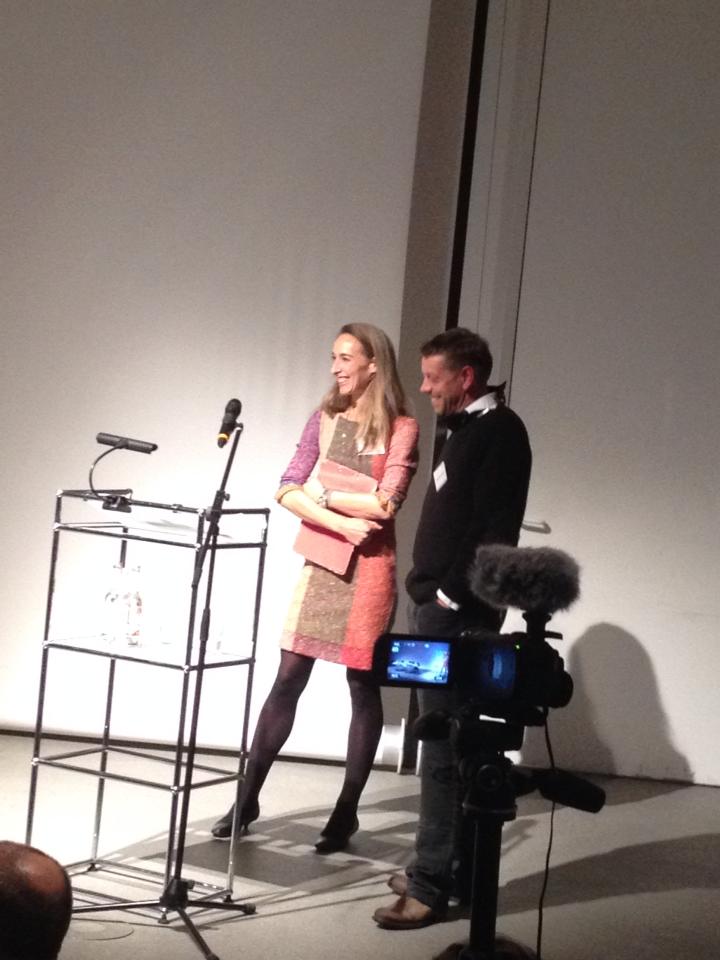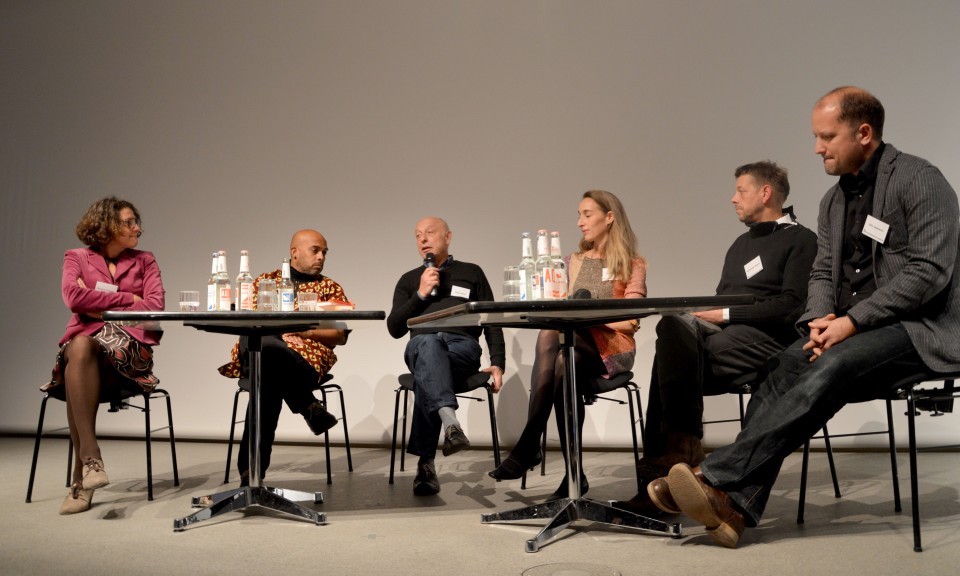


Symposium AFRITECTURE „exchanging knowledge“
third panel: Learning from Africa
15.11.2013
Pinakothek der Moderne
TU Munich, Goethe Institute, Bavarian Chamber of Architects
Third panel curated and moderated by Julia Hinderink, MA RCA for the Bavarian Chamber of Architects
Learning from Africa
The third panel “Learning from Africa” will focus on the transferability of examples and findings encountered in African contemporary architecture, the reach and limitations, their applicability and level of relevance. How to encourage a profession to engage with even more complexity will be another subject addressed. Architects can offer society visualizations of complex situations and find creative tools to enable communication between all stakeholders in order to create socially relevant architecture. Are there lessons to be learned for architects and decision makers in Europe? How could projects funded by donations or government subsidies in some of the poorest areas in the world offer valuable insights to some of its richest?
Panelists:
Nabeel Hamdi „Practice in the mess of informality“
Alen Jasarevic „The Islamic Forum in Penzberg, Germany – a route description“
Alexander Hagner „Learning by Doing“
Respondent:
Doung Anwar Jahangeer
Moderation:
Julia Hinderink
Biographies
Nabeel Hamdi
Nabeel Hamdi holds an architecture diploma from the Architectural Association in London 1968. He worked for the Greater London Council between 1969 and 1978, where his award-winning housing projects established his reputation in participatory design and planning. From 1981 to 1990 he was Assistant, then Associate Professor of Housing at the Massachusetts Institute of Technology (MIT), where he was awarded a Ford International Career Development Professorship. In 1997, Hamdi won the UN-Habitat Scroll of Honor for his work on Community Action Planning. He is currently Professor Emeritus at Oxford Brookes University. Hamdi has consulted on housing, participatory action planning and upgrading of slums in cities to all major international development agencies, and to charities and NGOs worldwide.
Alen Jasarewic
Alen Jasarevic was born in 1973 of Bosnian descent and grew up in the Federal Republic of Germany. He completed his architectural studies at the Hochschulen of Augsburg and Zurich with diploma in 1998. Subsequently he worked at "Kehrbaum Architekten" in Augsburg until setting up his own company in 2003. Besides working as freelance architect he held several teaching positions at the Hochschule in Augsburg, which focused on design and architecture. His designs encompass both his commitment to European modernism as well as his muslim roots. A prime example of this dichotomy is the Islamisches Forum in Penzberg, Germany. As his work is highly prized at international exhibitions, Jasarevic has received already many awards for his accomplishment of putting architecture and dialogue in a context.
Doung Anwar Jahangeer
Doung Jahangeer is a Mauritian born artist based in Durban, South Africa. He is trained as an architect but his passion lies with alternative ways of engaging space encapsulated in his concept/philosophy ‘anarchitecturewithoutwalls’. In 2000 he implemented his ‘CityWalk’ initiative as a way of encountering and observing the flux and mutability of his adopted city. It now includes 9 cities worldwide. He is deeply engaged in issues concerning urbanity. His work includes live performance, film/ video, sculpture, painting, installation and architecture. In 2008 he co-founded an interdisciplinary organisation called dala which focuses on devising initiatives which engage art/ architecture for social justice. He is currently Creative Director for the UIA 2014 in Durban.
Alexander Hagner
A carpenter by trade, Alexander Hagner went on to study architecture at the University of Applied Arts Vienna, Austria. There he joined initially the master classes of Johannes Spalt, and later on those of Wolf D. Prix. He graduated in 1995. In 1999, he founded gaupenraub+/-, together with Ulrike Schartner, as an open office for architecture, design and urban strategies, which deals with very specific topics. Since 2002, Hagner committed himself to create architectural alternatives for the homeless. One of these results is the emergency overnight accommodation VinziRast 2004, the flat share shelter VinziRast-WG 2010, and the brand new VinziRast-mittendrin – a home for the homeless as well as for students working at gaupenraub+/- . Currently, he is trying to get a low threshold housing service constructed in Vienna. Besides all this, Hagner is teaching at TU Vienna and TU Graz.
Susanne Hofmann
Susanne Hofmann Architects is an interdisciplinary practice that specializes in educational buildings and housing developed through unique participatory design strategies. Our work focuses on innovative experimental design that is driven by both a social and ecological agenda. A core team of eight architects and engineers collaborates with various designers, engineers and specialists dependent on each project.
Established in 2003, die Baupiloten is a collaboration between the Technical University Berlin and Susanne Hofmann Architects, which allows architectural students to be involved in real projects from conception through to completion. The Baupiloten studio bridges education, practice and research.